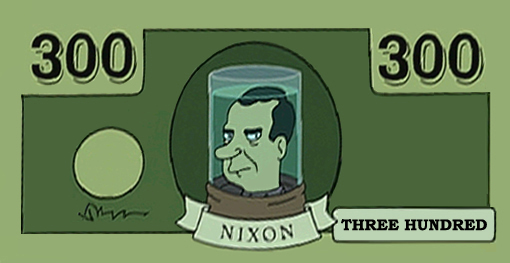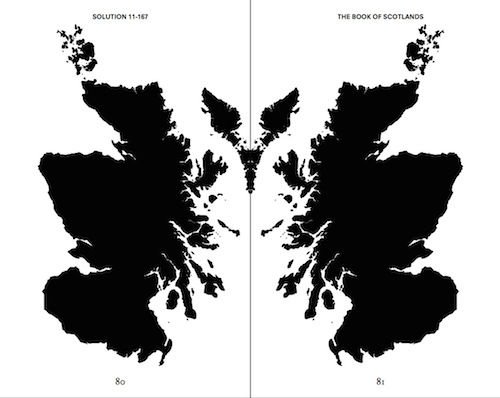Let’s Not Give Them an Inch
Remember Chiune Sugihara? He was the Japanese diplomat in Lithuania who, during World War II, went over his bosses’ heads by issuing exit visas to thousands of Jews whose lives were threatened by the Nazis.
We posted about him at New Escapologist because he used his free agency where others would have denied it. He was a cog in a machine but he refused to act like one.
I don’t think it’s fanciful to say that many of us will be given the opportunity over the next few weeks, months and years to act as Chiune Sugihara did. Some have already risen to the occasion.
Challenge racism wherever it arises. We too often tolerate intolerance.
Never play devil’s advocate by saying “well, at least the actions of Trump/May/Farage/White Supremacists will give us [blank].” Don’t look for silver linings in blatantly unconscionable acts. No potential gain is worth what they’re doing.
Do not look to their followers and confuse their cowardice, ignorance and spite with an appetite for change.
Do not pull your punches. Do not give them an inch. They’ve already taken their mile.
Whenever you get a chance — and you will get chances — use it to do the right thing. Your opportunity may not come in the form of saving six thousand lives with a signature, but you should still look out for that fork in the road where you can grind like a cog or step up like Sugihara.
Expletive Deleted!

I’ll probably not post much more about Universal Basic Income to this blog (though I reserve the right to tweet about it) lest NE become too one-note while there’s so much going on with UBI. As this article puts it:
There has recently been a surge of interest in basic income. […] Long derided as unaffordable and conducive to idleness, basic income is now attracting support from many quarters and standard objections have been robustly challenged. This interest has prompted the launch of several basic income pilots around the world. One started on 1 January in Finland with others planned in Ontario, Canada, Oakland, California, Aquitaine and Catalonia, and discussions are ongoing in Fife and Glasgow. A US NGO, GiveDirectly, is raising $30m for a 12-year experiment in Kenya.
But before we go quiet on this front, let me tell you that Utopia for Realists is a rather good book. It’s light on ideology and instead draws on a wealth of facts and figures, projections and dispassionate analyses of trials. We need more of this, especially in the age of personality politics and post-truth awfulness. There’s a great chapter about the history of UBI in which I learned the following.
President Nixon (of all people and, hey, as of this week he’ll only be the third most-despised US president in history) tried to get UBI for America. It was during a swell of national ambition after the moon landing, and in response to an open letter signed by 1,200 economists supportive of UBI.
Trials were conducted and the Nixon administration came tantalizingly close to eradicating poverty in America. Alas, it never made it through the Senate.
Attempts to save the project were made for a number of years and, in 1978, it almost made it. What ultimately killed the project was a moral panic resulting from a particular statistic from the trials: a 50% increase in divorce rates. This happened, it was reasoned, because women in receipt of UBI no longer had to stay married to jerks just to have food and a home.
Too much freedom for women was the concern that canned UBI in America.
I’m not sure which is more appalling — the very fact of this concern (“I’m not ironing my own goddam babies!”) or (wait for it) the discovery in 1988 that the 50% divorce figure was the result of a statistical error.
This is probably how the world will end, isn’t it? Stinking moral judgement based on obsolete ideas and a made-up a fact.
It resembles, to my mind, the current objection that UBI would lead to idleness when (a) trials indicate that it won’t, and (b) morally, there’s nothing wrong with idleness anyway. People shouldn’t have to stay put in a kitchen — domestically or professionally — if they don’t want to.
If you want to get a taste of this book before buying it, here is its author, Rutger Bregman, speaking quite compellingly on CBC Radio.
An Escapologist’s Diary. Part 49. 2016 Review.
Yes, folks, it’s time for the traditionally belated end-of-year review and report to my imaginary shareholders.
This year, the review’s late because I kept making the mistake of writing how I feel about Trump and Brexit and then deleting it. You can probably imagine those feelings because they’re obvious and shared by many. Instead, let’s stay positive and have a pleasant time before we’re all killed by a nuke or in a pogrom. (Haha. I am funny.)
Ahem.
My lovely partner and I finally live in Hyndland, in accordance with our obvious destiny. We were successful in securing a visa to live togther in my country of birth thanks to some decent people at the immigration department and having met the evil financial requirement through part-time toil.
Escape Everything! came out in January, which became the main event of my year. I mean, I got a book out of my brain and into the world – how great is that? Very!
We sold the rights to the German market, resulting in a chunky translated edition called Ich Bin Raus. It seems to be selling well in Europe and, by my standards, getting a lot of attention. This has resulted in a million Germans seeing a picture of my face before slinging it into the papierkorb.
2016 saw the release of New Escapologist Issue 12 with Will Self and a lot of nice articles about walking. Later, we launched Issue 13 with Caitlin Doughty and a very fine launch party.

I knew long in advance that Thirteen would be our final edition, though I didn’t know what the magazine’s afterlife would be like, if any. In the event, I decided to continue the blog you’re reading now, to spruce up the website, and to continue my Escapology column in the Idler – the first four installments of which were printed in 2016.
I helped edit Luke Rhinehart’s novel, Invasion, all the while wishing I could tell my 18-year-old self that he’d grow up to work a little bit with The Dice Man. The book came out in August and if you pick up a copy, you’ll see my name on the back cover, championing what lies within as if I weren’t personally involved in it.
We launched a new essay series under the auspices of New Escapologist, which will hopefully be funded through Patreon. We’re half way to having enough people to make this happen and keep the whole enterprise alive, post-magazine, so if you’ve enjoyed the website in 2016 or for the previous nine years and think it’s worth a quid a month, please join the New Escapologist green berets.
Friendships have been renewed and strengthened, good habits have been cultivated, and we indulged in some travel, twice to Montreal and twice to Berlin. They were all good trips but we really should spend our 2017 travel budget on going somewhere new. There was also that weekend in Wales for the Stewart Lee-curated festival, at which I looked like this:
— Robert Wringham (@rubberwringham) April 21, 2016
I ate lunch, fought eczema, watched cartoons, did a tiny bit of comedy on the night Gary Shandling died, sold books with Simon Munnery at the Edinburgh festival, aced the pub quiz, fucked the pub quiz, posted the first in a trilogy of deliberately boring podcasts, sat on my arse reading quite a lot, and solved my sock problem.
In 2017, I’d like to write a novel, start a second Escapology book, post twelve essays for the Patreon gang (here’s that link again), and maybe write and perform a one-person show for August. Not much then. Tune in this time next year to see which of these projects thrive and which ones die in a ditch!
Thank you to everyone who stuck around this year, read the books, and supported the Patreon. I need you and I’m grateful.
The @PenguinUKBooks website says my book weighs 395g. I wrote those grams. #soemotionalrightnnow https://t.co/VwP9mD7hGm
— Robert Wringham (@rubberwringham) January 22, 2016
★ The post-print phase of New Escapologist is just beginning. Go here to join in.
★ You can also buy all thirteen issues in print or PDF (in newly discounted £20 bargain bundles) at the shop.
Books of 2016
Because a couple of people asked, here’s a year in books. I wasn’t going to post this because doing so is becoming increasingly like the Art Garfunkel Library, which is a bit embarrassing, but hey-ho.
An asterisk* denotes an out-loud read while a dagger† denotes a re-read.
Robert MacFarlane – The Old Ways
Marie Kondo – Spark Joy
Tim Eyre – Crucible of Ice: Two Weeks in Greenland
Paul Auster – The Music of Chance†
Richard Maybe – Unofficial Countryside
Chris Kraus – I Love Dick
Mick Middles – Frank Sidebottom: Out of His Head
Dan Fox – Pretentiousness: Why it Matters
Keith Waterhouse – Billy Liar
Steve Coogan – Easily Distracted
Charles Foster – Being a Beast
Gerald Durrell – The Bafut Beagles*
Alexei Sayle – Thatcher Stole My Trousers
Helen Macdonald – H is for Hawk
Steve Aylett – Heart of the Original
Grayson Perry – Playing to the Gallery
Allan Brown – Inside The Wicker Man
Arkady and Boris Strugatsky – Roadside Picnic
Haruki Murakami – Hear the Wind Sing / Pinball, 1973
Edmund Crispin – The Moving Toyshop*
Ted Hughes – The Iron Woman
Julian Barnes – Arthur & George
Terry Pratchett – Mort*
Paul Manson – Postcapitalism
Paul Auster – Report from the Interior
Susan Juby – I’m Alice
Nikolai Gogol – The Nose
Sarah Bakewell – At the Existentialists’ Cafe
Patricia Highsmith – Ripley Under Ground
Richard Gordon – Doctor At Large*
Ewan Morrison – Swung
Dan Rhodes – Timoleon Vieta Come Home
Dan Rhodes – Anthropology
Dan Rhodes – When the Professor Got Stuck in the Snow
John Major – My Old Man: a Personal History of Music Hall
David Allen – Getting Things Done
Stephen Leacock – Nonsense Novels*
Beryl Bainbridge – A Quiet Life
L. Frank Baum – The Wonderful Wizard of Oz*
Tom Hodgkinson – Business for Bohemians
Jonny Trunk – The Art of Small Films
G.K. Chesterton – The Man Who Was Thursday
Comics (first time I’ve listed them separately — not sure why):
Peter David – X Factor Vol. 3
Grant Morrison – Animal Man Vol. 1
Charles Burns – X’d Out
Len Wein – Giant-Size X-Men Vol. 1
John Ostrander et al – Justice League International Vol. 2
Geoff Johns – Booster Gold Vol. 1
Peter Milligan – X-Statix Vol. 1
Daniel Way – Deadpool Vol. 1
Joe Hill – Locke and Key Vol. 1
Books read in substantial part but left unfinished:
Haruki Murakami – The Wind-Up Bird Chronicle†
Nick Srnicek and Alex Williams – Inventing the Future: Postcapitalism and a World Without Work
Robert Atkinson – Island Going
But!
The main reading event of my year doesn’t appear in the list since it’s neither finished nor abandoned: Don Quixote. I’m about halfway through, almost at the end of Book 1. It’s good but knackering.
★ The post-print phase of New Escapologist is just beginning. Go here to join in.
★ You can also buy all thirteen issues in print or PDF (in newly discounted £20 bargain bundles) at the shop.
Basic Income Trials Begin in Europe
The first cheques were sent out this week in a landmark Basic Income experiment in Finland. Additionally:
Basic income experiments are also due to take place this year in several cities in the Netherlands, including Utrecht, Tilburg, Nijmegen, Wageningen and Groningen. In Utrecht’s version, called Know What Works, several test groups will get a basic monthly income of €970 under slightly different conditions.
Sorry to bang on about Universal Basic Income. Our interest in this at New Escapologist is that, were it adopted, it would provide an escape route for all. That is: freedom to work by choice, freedom to not work at all if frugal, freedom to start a business with minimal risk, or freedom to be an artist or a writer without starving in a smelly old ditch.
Here’s a brand-new guide to Basic Income from the Citizen’s Income Trust.
★ The post-print phase of New Escapologist is just beginning. Go here to join in.
★ You can also buy all thirteen issues in print or PDF (in newly discounted £20 bargain bundles) at the shop.
Kipple

Watching a 1994 Arena film about Philip K. Dick and — bang — they bring up kipple.
Kipple is a word invented by Dick to describe the sort of detritus that accumulates around you almost without your notice. He means things like half-burned tea lights, light bulbs which may or may not work, and nice pens for which you long ago ran out of ink. They’re there now, haunting the backs of drawers.
In case you’re wondering, this is an ever-so-slightly different sort of clutter to dark matter.
I once started an essay for New Escapologist called War On Kipple in which I’d describe the kipple problem and offer tips on how to keep kipple at bay. I ditched it because there are topics other than minimalsm to write about in Escapology, and even within minimalism kipple is a smaller problem than, say, houses and cars and storage units. It was also too easy to come across as a fascist when talking about the abolition of kipple: does purity matter, ever? Is a maniacal purge of the kipple universe necessary? Maybe there are ways of resolving these questions but this was the line of thinking that made me ditch the essay.
Kipple struck me as an odd thing to include in a documentary about Philip K. Dick in which you’ve only got an hour to play with, so maybe minimalism and entropy have a wider appeal as subjects than I thought.
So if you’re interested in kipple, here’s the discussion about it from Do Androids Dream of Electric Sheep?:
“Kipple is useless objects, like junk mail or match folders after you use the last match or gum wrappers or yesterday’s homeopape. When nobody’s around, kipple reproduces itself. For instance, if you go to bed leaving any kipple around your apartment, when you wake up the next morning there’s twice as much of it. It always gets more and more.”
“I see.” The girl regarded him uncertainly, not knowing whether to believe him. Not sure if he meant it seriously.
“There’s the First Law of Kipple,” he said. “‘Kipple drives out nonkipple.’ Like Gresham’s law about bad money. And in these apartments there’s been nobody here to fight the kipple.”
“So it has taken over completely,” the girl finished. She nodded. “Now I understand.”
“Your place, here,” he said, “this apartment you’ve picked — it’s too kipple-ized to live in. We can roll the kipple-factor back; we can do like I said, raid the other apts. But — ” He broke off.
“But what?”
Isidore said, “We can’t win.”
“Why not?” […]
“No one can win against kipple,” he said, “except temporarily and maybe in one spot, like in my apartment I’ve sort of created a stasis between the pressure of kipple and nonkipple, for the time being. But eventually I’ll die or go away, and then the kipple will again take over. It’s a universal principle operating throughout the universe; the entire universe is moving toward a final state of total, absolute kippleization.”
★ The post-print phase of New Escapologist is just beginning. Go here to join in.
★ You can also buy all thirteen issues in print or PDF (in newly discounted £20 bargain bundles) at the shop.
Basic Income Trials for Scotland?

This is a nice headline for a New Year’s Day morning: Universal basic income trials being considered in Scotland.
Scotland, of course, is where I live. And Basic Income is something I believe in and have written lots about. So this is a very happy way to start the year.
Scotland looks set to be the first part of the UK to pilot a basic income for every citizen, as councils in Fife and Glasgow investigate trial schemes in 2017.
The councillor Matt Kerr has been championing the idea through the ornate halls of Glasgow City Chambers, and is frank about the challenges it poses.
“Like a lot of people, I was interested in the idea but never completely convinced,” he said. But working as Labour’s anti-poverty lead on the council, Kerr says that he “kept coming back to the basic income”.
Now, “Basic Income set to free millions under the kosh of Calvinism” would be a better headline and one I’d love to see on the front page of the Glasgow Herald next January 1st, but this is a start.
The thing about Scotland is that they really understand the precariat, … The sense of insecurity, the stagnating living standards, all of those things are clear in Scotland and the fact that so many within the SNP are supportive means there’s a real opportunity to do a pilot in Scotland. The momentum is there and once it is framed around a desire for greater social justice then you get away from the stale debate about whether if you give people the basic income then they will be lazy.
This isn’t exactly my catchphrase but: let’s get to work.
★ The post-print phase of New Escapologist is just beginning. Go here to join in.
★ You can also buy all thirteen issues in print or PDF (in newly discounted £20 bargain bundles) at the shop.





